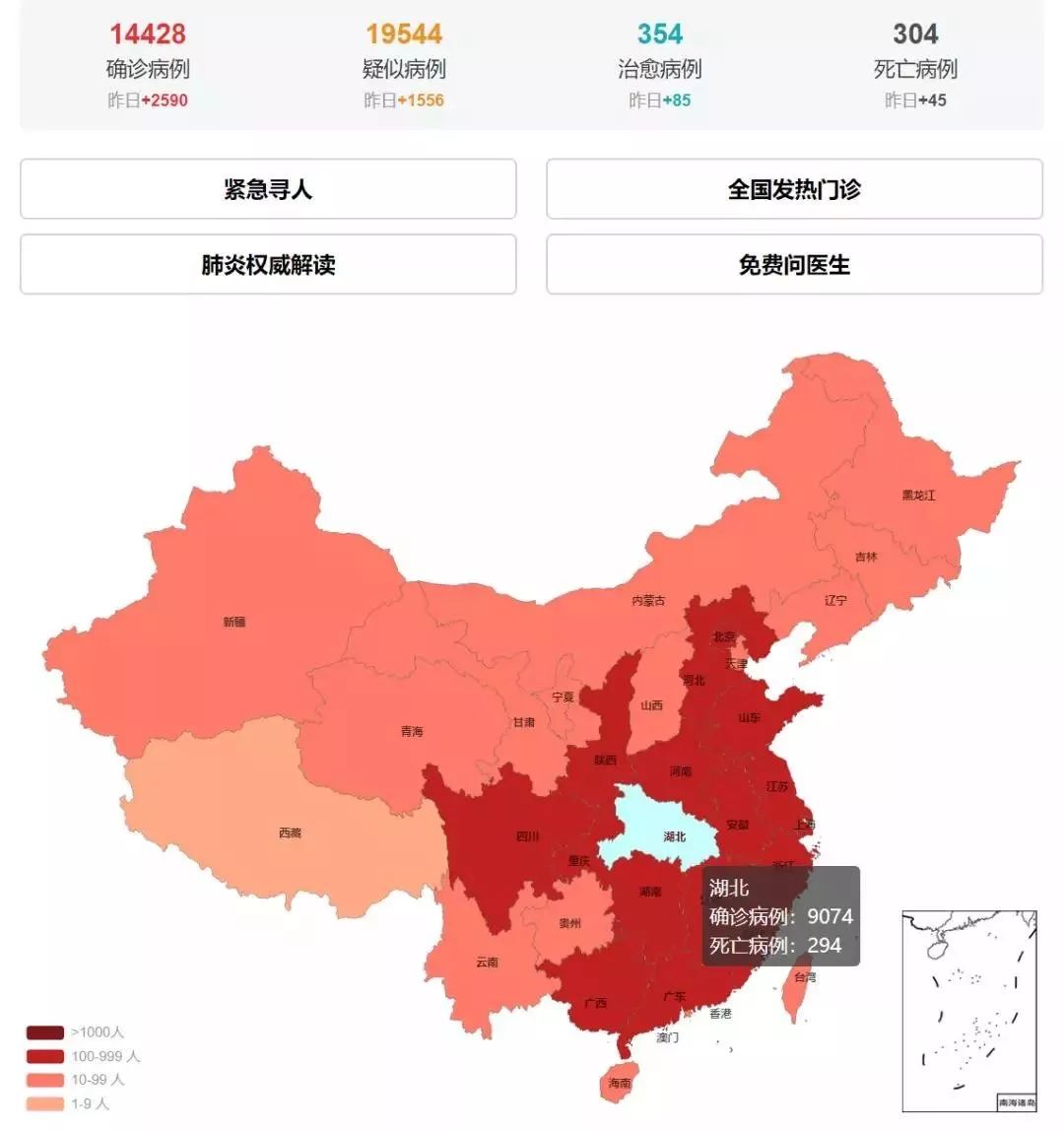

Behind the crisis of the new crown epidemic, the industrial Internet is expected to turn crisis into opportunity

Author·Yu Dong
source · B2B internal reference
▼
In crisis, there is opportunity. 17 years ago, the SARS crisis gave birth to C-end e-commerce companies such as Alibaba and JD.com, which ultimately led to China’s current consumer Internet boom. Seventeen years later, the severe COVID-19 epidemic has brought about "city closures", reduced mobility of people, supply chain crises and remote office business needs, which have not only made people more deeply aware of the value of consumer Internet companies such as e-commerce, food delivery and online ride-hailing. , and also brings opportunities to industrial Internet companies. 
The COVID-19 epidemic has become the biggest black swan in 2020. The rapidly spreading epidemic has brought severe challenges to the country, and has also once again strained the Chinese economy, which had just breathed a sigh of relief after the signing of the China-US trade agreement. Obviously, the "black swan" of the new coronavirus epidemic will have varying degrees of impact and impact on major industries in the coming period.
The so-called crisis brings opportunity. As an entrepreneur, you must not only cooperate with the country to fight the epidemic with all its strength, but also need to think about whether this crisis will not only impact the economy, but also whether there are new opportunities. If so, where are they? Let’s first Let’s take a look at some of the revelations brought about by the SARS crisis 17 years ago.
During the SARS period in May 2003, an Alibaba employee contracted SARS because he went to Guangzhou to participate in the Canton Fair. As a result, more than 500 people in the company were quarantined at home. Jack Ma himself was also quarantined at home. This was a problem for Alibaba, which was developing rapidly at the time. , is undoubtedly a disaster. Excellent companies can always see opportunities in dangers. Alibaba did not sink. Instead, it took advantage of the SARS period when foreign businessmen were unable to come to China and had to choose online transactions to develop rapidly. Its business has grown at a rate of more than 50%. What is even more commendable is that Jack Ma took advantage of the situation during SARS to launch Taobao, which ultimately laid the foundation of his e-commerce empire.
Also an e-commerce giant, Liu Qiangdong of JD.com also faced a critical moment in his life during the SARS crisis in 2003. Due to the impact of SARS, Liu Qiangdong's offline physical store in Zhongguancun suddenly lost business, and the company faced a life-and-death test. Liu Qiangdong did not give up, but tried to sell electrical appliances online, and unexpectedly achieved great success. With this counterattack, Liu Qiangdong took a key step from a small boss to an e-commerce giant.
Judging from the stories of Jack Ma and Liu Qiangdong, uncontrollable major disasters like the epidemic are certainly scary, but if opportunities can be found in disasters, outstanding companies can often stand out. All previous crises are dangers to the traditional development model and opportunities to the scientific development model.
17 years ago, the SARS epidemic made people afraid to go shopping, which eventually gave rise to C-end e-commerce companies like Alibaba and JD.com. Today, online shopping, ordering takeout at home, and going out to order online ride-hailing have become commonplace. With Alibaba, Consumer Internet companies represented by JD.com, Meituan and Didi have also developed into industry giants with astonishing market capitalization.
Seventeen years later, when we are once again faced with a major disaster like the COVID-19 epidemic, faced with "city closures", a significant reduction in the movement of people, repeated extensions of holidays, delayed factory openings, and unprecedented challenges to factory production and supply chain distribution. We found that at this time, people not only need consumer Internet services such as e-commerce takeout, but also need to trade production materials and other corporate materials online. They also need reliable corporate services such as remote office commerce to reduce the flow of people during the epidemic and reduce the risk of infection in person. risk. Under such circumstances, the industrial Internet trading platform characterized by B-end production material transactions and enterprise service companies that meet the needs of remote working are facing unprecedented opportunities. The industrial Internet is expected to usher in rapid development after the epidemic.
Like the early consumer Internet, although the development of the industrial Internet is an irreversible development trend, it still encounters many difficulties in its advancement. For example, the informatization awareness of a large number of traditional enterprises is still weak and the degree of digitalization is still low. The seriousness of this epidemic will force and promote many traditional enterprises to pay more attention to and actively carry out procurement and sales through e-commerce platforms, and use information tools more extensively to improve their operational efficiency. This will have a major positive impact on promoting the development of industrial Internet platforms and improving the digital operations of traditional enterprises.
It is foreseeable that due to the control of personnel movement and contact during the epidemic, enterprises will be suppressed to a certain extent at the production and supply chain levels. However, after the epidemic control is lifted, the production capacity of enterprises will experience a concentrated outbreak. For those who have been For industrial Internet platforms that focus on transactions, due to their ability to digitally process large-scale orders, they will have more opportunities to accept orders, and companies will be more willing to conduct transactions directly through such platforms.
Of course, in the short term, the COVID-19 epidemic will also have a certain negative impact on industrial Internet platforms. This is mainly reflected in the fact that during the epidemic control period, enterprises will not be able to carry out normal procurement and sales operations. However, this impact will be short-lived and is expected to be It will be affected until the end of February. The backlog of purchasing and sales demand during this period will explode in a more concentrated manner in March and beyond.
Therefore, we predict that industrial Internet platforms in various vertical tracks, especially B2B trading platforms with strong transaction attributes, will develop more rapidly after the epidemic. Representatives of such enterprises include platforms with strong trading attributes such as Guolian Shares (603613) and Shanghai Steel Union (300226), which have been listed in China, as well as enterprises such as Glodon (002410), Focus Technology (002315), and Business Bao (002095). Informatization and information service-oriented platforms are expected to see a reverse rise after the market opens.
In fact, the currently listed industrial Internet companies are just the prelude to the development of the entire industrial Internet in China. According to our monitoring data, there are currently more than 20 industrial Internet companies with a valuation of more than 1 billion US dollars in the primary market, with a valuation of 5 There are dozens of industrial Internet companies in the US$1 billion to US$1 billion range, such as Meicai in the fresh food field, Zhaogang in the steel field, Kangzhong in the auto parts field, Baibu in the clothing fabrics field, and FMCG in the field of fast moving consumer goods. A number of powerful industrial Internet unicorns such as Yijiubi and Dasouche in the second-hand car field, including top investment institutions such as Hillhouse Capital, Sequoia Capital, and giants such as Alibaba and Tencent, have already made in-depth deployments in the industrial Internet. In the future, There is a high chance that companies with tens of billions or even hundreds of billions of dollars will appear in the industrial Internet field.
Today, when the COVID-19 epidemic is severe, we deeply understand the value of consumer Internet companies and enjoy the convenience that consumer Internet companies bring to our lives. We also have reason to believe that industrial Internet companies that move B-side transactions online and corporate service companies that provide people with remote office business services also have great value, because industrial Internet companies can also reduce the frequency of people meeting during the epidemic. Complete the purchase of enterprise production materials online.
17 years ago, the SARS crisis gave birth to C-end e-commerce companies such as Alibaba and JD.com, which ultimately led to China’s current consumer Internet boom. Seventeen years later, the severe COVID-19 epidemic has brought about "city closures", reduced mobility of people, supply chain crises and remote office business needs, which have not only made people more deeply aware of the value of consumer Internet companies such as e-commerce, food delivery and online ride-hailing. , and also brings opportunities to industrial Internet companies. If industrial Internet companies can seize the opportunity in this new crown crisis, they will also have the opportunity to swim against the current of this crisis, and while promoting their own development, they will continue to promote the digitalization and intelligent upgrading of China's traditional industries.
